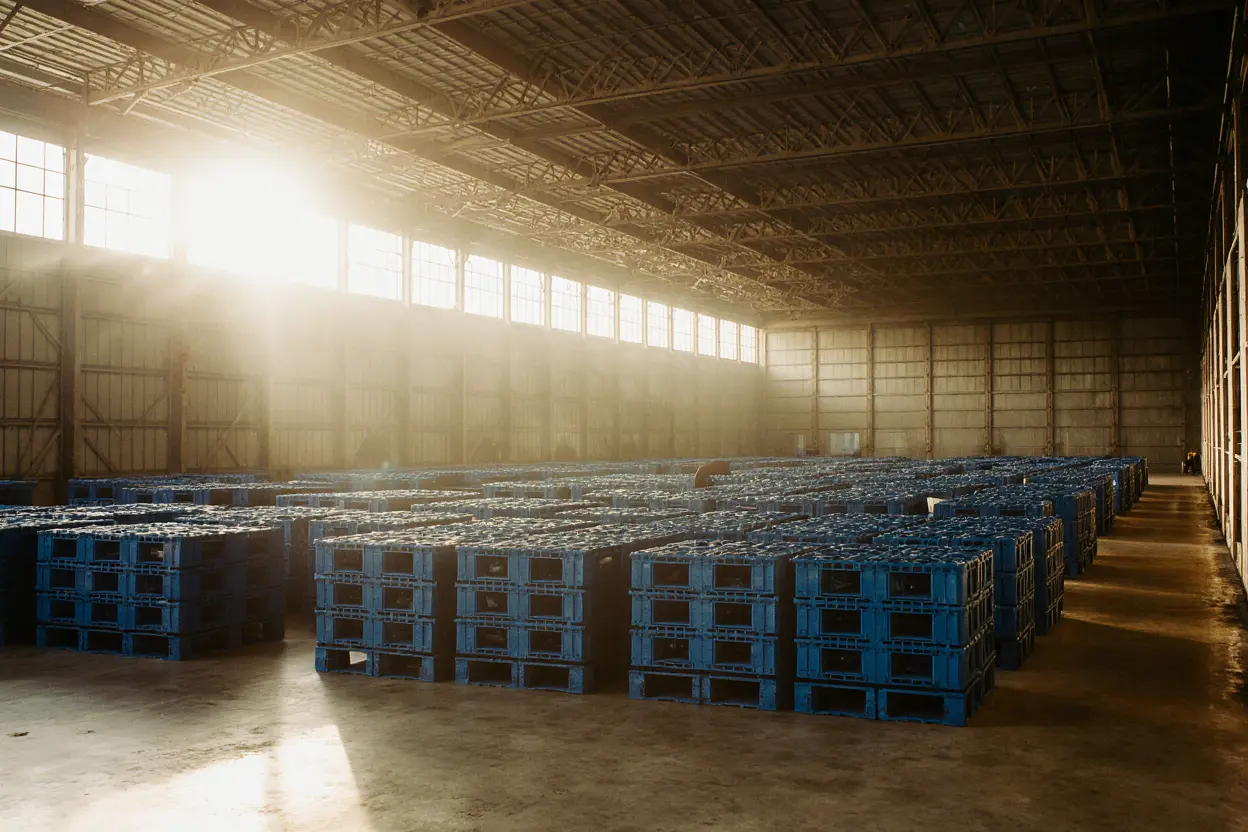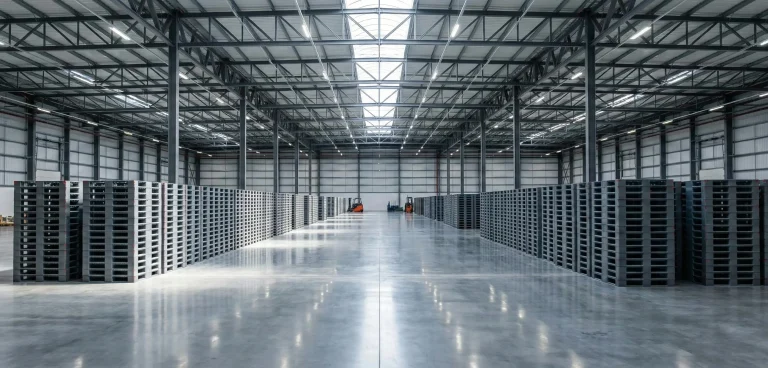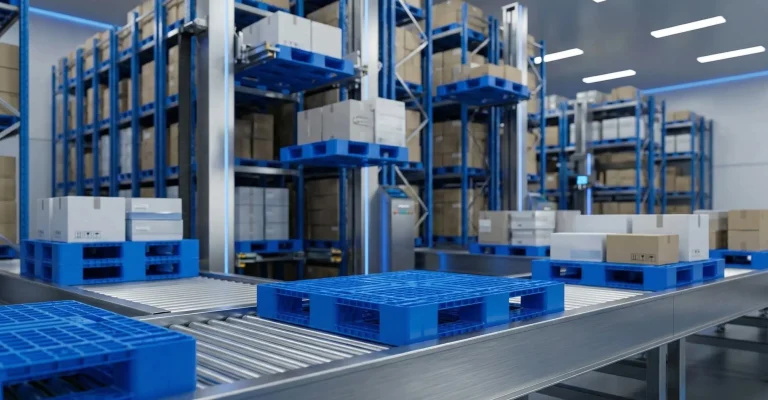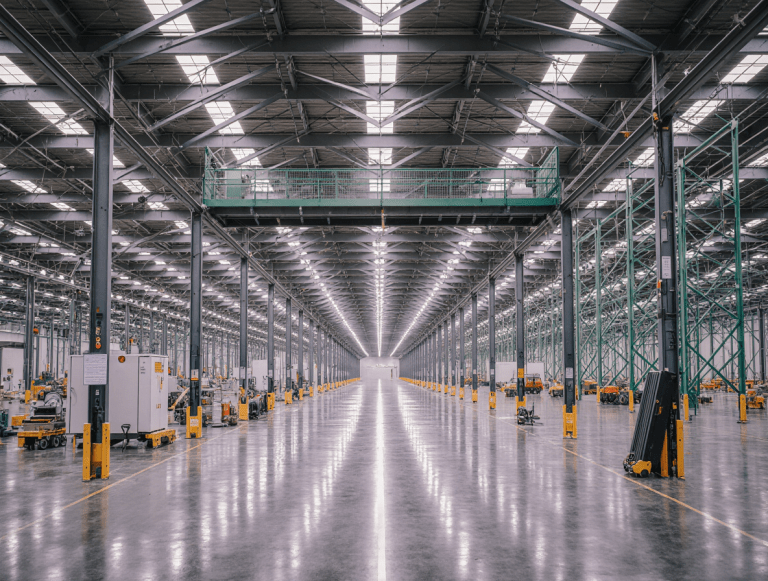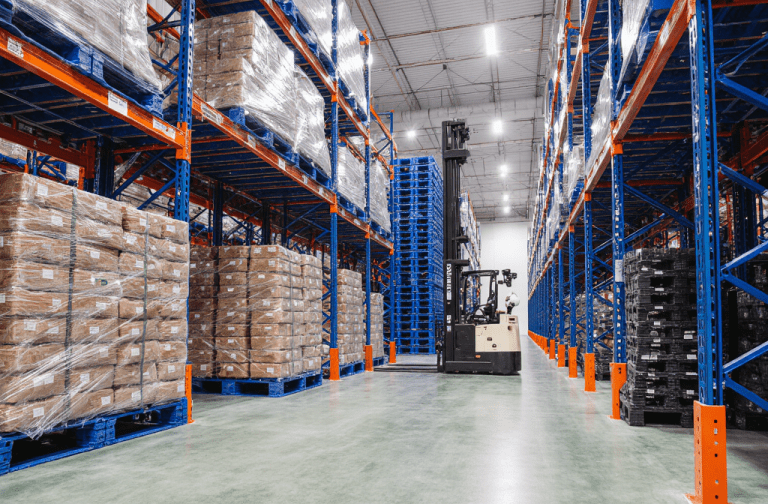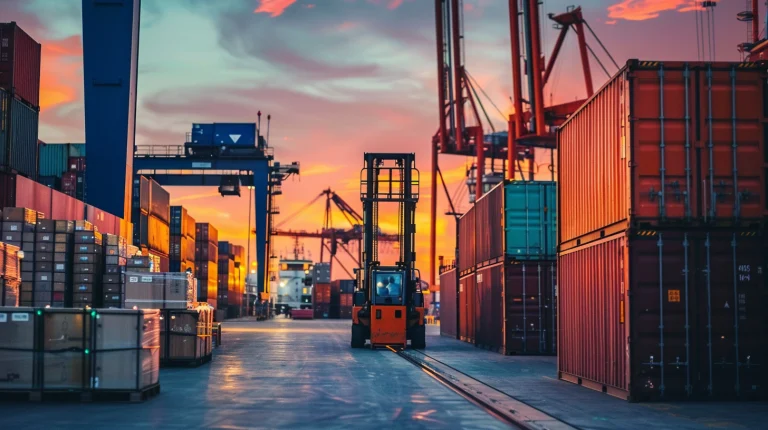Pallets are a core but often overlooked component in warehousing, logistics, and shipping operations.
For decades, wooden pallets were preferred in supply chains due to their low initial cost and ease of repair, while steel pallets have been reserved for heavy-duty applications demanding extreme durability.
However, plastic pallets have been steadily increasing in adoption because they offer cleaner, more efficient, and increasingly sustainable solutions suitable for modern business needs¹.
Wooden and steel pallets: Familiar, but with limitations
Wood
Wooden pallets remain widely used worldwide as they are inexpensive and readily available. In particular, their ability to be easily repaired is a practical benefit for many businesses.
However, wood’s porous nature leads to moisture absorption, which can harbor bacteria and pose contamination risks in industries dealing with sensitive products.
Industry data continues to highlight how wooden pallets can absorb significant amounts of moisture², which not only increases the risk of contamination but also adds weight, complicating handling and shipping.
Even more concerning: wooden pallets tend to splinter and slowly degrade, requiring fumigation or heat treatment to meet international shipping standards, which adds cost and operational complexity.
In recent years, concerns about deforestation and greenhouse gas (GHG) emissions have added another layer of scrutiny to the use of wooden pallets. Forests play a vital role as natural carbon sinks, and cutting down trees for timber reduces one of the most effective natural means of absorbing atmospheric GHGs.
As sustainability becomes a global priority, industries have to rethink their reliance on wood-based materials and seek more eco-conscious alternatives.
Steel
Steel pallets are known for their exceptional strength and resilience, capable of handling very heavy static and dynamic loads.
Their corrosion resistance can be enhanced with appropriate coatings, but untreated steel is prone to rust.
Steel pallets typically serve industrial sectors such as heavy manufacturing or chemical bulk storage, where robustness is essential. Despite this, steel pallets are heavy and expensive to manufacture and transport, making them impractical for routine warehouse or shipping tasks.
The advantages of plastic pallets in modern supply chains
Plastic pallets are engineered for modern supply chains, offering clear advantages over wood and steel:
Reliable and consistent performance across diverse warehouse environments, including conventional storage, cold rooms, and automated systems, ensuring consistent strength and handling efficiency in any condition.
Non-porous and splinter-free surfaces help prevent moisture absorption and contamination, making them ideal for hygienic applications such as food, pharmaceuticals, and cold chains.
Lightweight construction often reduces shipping costs compared to wood and steel, while standardised sizes and consistent dimensions improve automation compatibility and handling efficiency. This also leads to overall reduced CO2 emissions.
Longer lifespan means quality plastic pallets can last up to 10 years with proper use, compared to 2 to 3 years for wooden pallets. This leads to lower total cost of ownership, fewer replacements, and reduced environmental waste over time.
Improved sustainability is achieved through advances in recycled plastic usage, which have significantly reduced the carbon footprint of plastic pallet production. Many manufacturers now use recycled materials to create durable pallets that align with corporate sustainability goals and circular economy practices.
Choosing the right plastic pallet
Not all plastic pallets are the same. Different operations require different designs, and this is where choosing the right pallet makes a real difference.
Whatever your purpose, IntracoPallet offers a wide range of models tailored to specific applications.
Warehouse pallets
For internal storage and handling:
- M-Series (Medium-duty)
- Ideal for stacking uniform goods and light racking.
- Efficient weight-to-strength ratio for medium-duty use.
Available in single-sided and double-deck options.
For automated storage environments:
- A-Series (ASRS)
- Designed for ASRS and drive-in racking systems.
- Handles heavy loads with minimal deflection.
- Many models are steel-reinforced for high racking performance.
For ultra-hygienic environments:
- P-Series (Pharmaceutical)
- Smooth surfaces all around, including under-deck, to minimise contamination.
- Designed for stacking and racking in sensitive environments.
- Ideal for pharmaceutical and hygienic applications.
- S-Series (Super hygiene)
- Smooth surfaces suitable for HACCP and GMP environments.
- Available in various configurations including single-sided, double-deck, reversible, and 9-leg.
- Many models are steel-reinforced for strength and durability.
- H-Series (Heavy-duty)
- Reversible and double-deck designs with high load capacities.
- Suitable for stacking, racking, and heavy transport.
- Ideal for both warehouse use and shipping heavy goods
Shipping pallets
When the priority is transport:
Made of 100% recycled plastic.
Ultra-lightweight design for cost-efficient shipping.
Nestable options for space savings when empty.
Suitable for one-way shipments with good dynamic load capacity.
You can also have a smarter, more sustainable supply chain!
Transitioning to plastic pallets is a strategic decision that supports improved hygiene, longer product lifecycles, and streamlined operations.
Many companies initially replace wooden pallets in critical areas, progressively expanding plastic pallets use company-wide as benefits become evident in cost reduction and operational reliability.
Industries such as logistics, food and beverage, pharmaceuticals, and manufacturing already demonstrate clear gains with plastic pallets, especially as automation and sustainability remain central to supply chain evolution.
For example, a beverage supplier in Ohio, USA switched to plastic pallets and saved nearly 1,000 gallons of fuel and cut 20,000+ pounds of greenhouse gases per 100,000 plastic pallets shipped, while improving stacking and sanitation³.
Let IntracoPallet support your transition
IntracoPallet has been a trusted partner to Malaysian businesses since 1994, offering expert guidance to assess operations and recommend optimal pallet solutions tailored to specific applications.
Whether the need is for warehouse, shipping, or hybrid pallets, IntracoPallet helps businesses balance cost, hygiene, and eco-friendly standards to enhance supply chain efficiency and sustainability.
The right pallet can transform your supply chain from the ground up. Talk to IntracoPallet today and let our experts match you with plastic pallet solutions that boost efficiency, hygiene, and durability.

